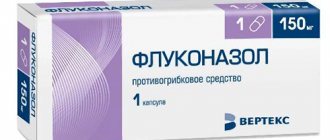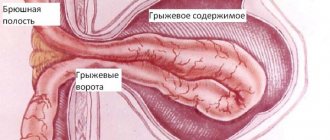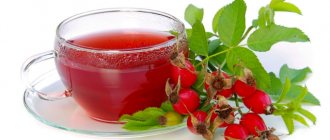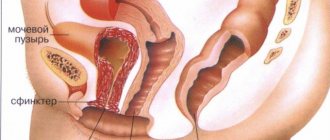Many healthy foods for the bladder and kidneys are available in every refrigerator, but not every person knows about their benefits. To maintain the health of the bladder, it is necessary to take care of proper nutrition, since many foods can cause various diseases of the genitourinary system. It is important to monitor the amount of liquid you drink, not to get carried away with carbonated drinks and not to drink alcohol and beer, in particular.
A number of products have a beneficial effect on the functioning of the bladder, which can be used in case of disease of this organ.
General rules
For normal functioning of the kidneys and bladder, it is recommended to adhere to the following dietary rules:
- Do not disrupt your diet. Eat food 4-5 times a day in small portions.
- Avoid foods containing large amounts of salt, spices, and oxalic acid.
- Introduce more foods rich in vitamins (vegetables, fruits, honey) into your diet.
- At the beginning of the day, it is better to eat food with a long digestion period, and in the evening - low-calorie diet dishes.
- Avoid eating 2 hours before bedtime.
It would also be useful to follow the drinking regime for bladder infections:
- do not drink large quantities of water at a time, avoiding overloading the bladder;
- drink often, in small portions;
- It is not recommended to delay the urge to urinate to avoid the appearance of stones.
How to eat if the organ is healthy?
Sticking to a healthy diet is often difficult, since not everyone has enough time and money for healthy food. But bladder diseases are easier to prevent than to treat. Normally, you should drink 2 liters of water daily, but not in one gulp, but in separate portions. Replace snacks with vegetables and fruits, such as plums and apples, which are excellent for removing toxins. Try to eat regularly and not skip meals. Do not indulge in fatty and spicy foods.
A watermelon cleanse will be extremely effective for a healthy bladder. Its essence is that with the help of this fruit you can remove stones and sand from the bladder.
What foods are harmful to the organ?
One of the most dangerous foods for bladder health is salt. Increased salt content in the body retains fluids, irritates the walls, and provokes swelling. However, it is also undesirable to completely give up salt, because the acid-salt balance is important for the functioning of the entire body. Paradoxically, for the health of the bladder, it is not recommended to consume abundantly in the diet such a healthy product as spinach, which contributes to the formation of stones.
Coffee
Coffee is known to have a diuretic effect.
According to scientific data, a dose equal to 6 mg/kg of caffeine significantly increases the excretion of fluid from the body, which helps to activate the motility of all parts of the urinary system and, as a result, remove small stones and salts that can cause the development of clinical symptoms of urolithiasis.
Separately, it should be noted the works of British scientists who proved that caffeine does not disrupt the water and ion balance in the body when developing a diuretic effect as part of maintaining a normal lifestyle and adequate fluid intake according to physiological standards.
14 more facts about the benefits of coffee here →
Coffee is an excellent diuretic for the prevention of urolithiasis and stagnation of urine. And as you know, stagnation of urine increases the risk of infectious and inflammatory pathologies of the bladder.
Healthy eating for the adult bladder
A special feature of the organ, the bladder, is its filtration and cessation function. The bladder has another unique feature - it changes its size depending on the amount of incoming fluid. The optimal volume of liquid held in it should not exceed 500-700 ml.
A healthy organ will allow the normal functioning of the entire body. Let's talk about such an unusual topic, little covered on forums, as healthy eating for the bladder.
Proper nutrition for the bladder begins with following the rules
- Avoid the accumulation of excess urine in the organ, and for this, do not abuse liquid food and drink. We recommend drinking frequently, in small doses. Then there will be no constant feeling of excess urine, there will be no excessive urination.
- Do not abstain from water or other liquids. This is a particularly important point for those on a diet. It happens that after reading about water in fat cells, girls decide to exclude all drinks from their diet, in the hope of instant weight loss. This is an extremely harmful solution for the body. Lack of fluid leads to an increase in the concentration of urine, causes irritation of the bladder, and leads to the accumulation of harmful substances in the renal ducts. For dietary menus, fluid/water consumption is calculated at least 2 liters daily.
- Urinate as needed. Avoid moments of urinary retention/overexposure. Long-term abstinence leads to inflammation of the urethra in men, and inflammation of the bladder in women. Both diagnoses are accompanied by a painful, drawn-out process of urine removal and subsequent long treatment.
- Avoid excessive consumption of smoked and heavily fried foods.
- Include vegetables, fruits, purified water, and green tea in your menu.
Bad food for the bladder
Not every vegetable/fruit will benefit your urinary system. Here is a list of harmful products for this organ:
- The bladder, unlike the liver, does not like citrus fruits. Yes, yes, did you remember tea with lemon or New Year’s tons of tangerines? Even urine juices are difficult to tolerate. Orange, grapefruit, lemon - the most delicious drinks for a person, it turns out, harm his bladder.
- Our urine doesn't like sweetness. He would gladly give up coffee, or rather caffeine. From hot chocolate, replacing it with a regular bar. He would also ask his master to stop drinking more than 3 cups of strong tea a day.
- During the festive feast, the bladder, if it could, would shout loudly: “No!” - at the sight of hot seasonings and an abundance of sweets with honey. And in the morning I would stop the 3rd spoon of sugar for my usual tea/coffee. All these products irritate him.
- Those who often suffer from cystitis should avoid tomatoes and their derivatives. Moreover, both fresh and canned. It turns out that your favorite borscht needs to be replaced with another first course if you constantly experience urinary irritation.
- Does not like urine soda and carbonated drinks. If possible, I would refuse heavy cream and cheeses.
- Smoked, salted, eaten in excess leads to spasmodic syndromes of the ureter and irritates the walls of the bladder.
Bladder nutritional preferences
Healthy nutrition for the bladder is not so scarce. Some, having read the list of unloved foods, have probably already fallen into confusion: “What to eat?” Oh, there is a lot left that is tasty and healthy for the urinary system.
Here is a recommendation list:
- Not all acidic foods are poorly tolerated by the bladder. Cranberry is an acidic fruit that is beneficial and is well absorbed by the body. It protects the bladder and ureters from the build-up of stones.
- Pectin is very necessary for the organ that filters harmful substances. Apples, plums, maybe bananas are fruits that are rich in pectin. They will help cleanse the urinary tract of toxins.
- The hollow bladder, as described by the urinary sources, must be supplied with blood. To increase blood flow, add bran or bran products to your diet. Incorporate a natural source of B vitamins.
- Drink rosehip infusion instead of tea bags. It tones, no worse than black/green teas. Rich in vitamin C, it will have a calming, stabilizing effect on urination function.
- Sea buckthorn is very, very important for the bladder. Nutrition for the bladder , properly balanced, should include 20 grams. sea buckthorn daily. Provitamin A from this berry is absorbed more fully and quickly in the urinary tract and supports its contractile functions, which is of paramount importance. After all, the bubble “adapts” its volume to the liquid contained inside.
- Fish should not be excluded from the diet. Delicious, fatty sea fish, steamed or baked, will add essential unsaturated fats, or simply put, Omega 6 and vitamin D.
Cranberry juice (fruit drink)
During illness, you should avoid coffee, alcohol, carbonated drinks or tea. They accumulate in urine and cause pain when going to the toilet. Drink unsweetened cranberry juice. It is a natural and effective remedy for infection.
The beneficial substances in cranberries work as anti-inflammatory drugs and have an antibacterial effect. They prevent bacteria from attaching to the mucous membrane of the bladder walls and prevent the development of infection. Drink 250 ml of fruit drink to prevent cystitis, and 400 ml to treat it.
What foods irritate the bladder?
A patient diagnosed with urinary incontinence and overactive bladder experiences a significant decrease in the quality of his life and faces numerous limitations. However, often restriction of physical activity, compliance with precautionary measures and drug treatment do not give the desired results, and the doctor recommends additional therapeutic precautions. For example, did you know that even in the early stages of urinary incontinence, reducing your intake of certain food groups can significantly reduce symptoms of frequent urination? Read more about these dietary restrictions in the publication.
Fluids and daily drinking limits
Reducing the amount of fluids consumed is perhaps the very first precautionary measure that is used by everyone who is faced with a diagnosis of “overactive bladder.” After all, the less we drink, the less likely we are to need to go to the toilet frequently and the less likely we are to end up with a urine leak. Is not it?
The logic is correct, however, if you reduce your daily fluid intake to a minimum (less than 6 cups per day), your urine becomes highly concentrated, which further irritates the bladder and spontaneous discharge, as well as the urge to go to the toilet, can only become more frequent. That is why, to regulate urination, it is necessary first of all to pay attention not to the amount of liquid consumed, but to its chemical composition.
As for the drinking regime, experts recommend normalizing the amount of fluid consumed per day - from 1 to 1.5 liters per day. Of course, it is desirable that most of the daily fluid intake should be plain water.
Citrus fruits and other foods high in vitamin C
Since childhood, many residents of Russia have retained the habit of buying ascorbic acid periodically and taking it prophylactically, especially in the cold season, to increase immunity and resistance to diseases. However, if you have problems with urination, then it is recommended to give up this habit. And not only from ascorbic acid tablets, but also from foods high in vitamin C in general, such as oranges, lemons, grapefruits and other citrus fruits, as well as pineapples and black currants.
Despite the truly proven benefits of eating fruits, these types should be avoided due to their high acidity, which will only irritate the bladder and provoke a more frequent urge to urinate. Unfortunately for vitamin C lovers, they are not recommended for use not only in their pure form (fresh, frozen), but also fruit juices from these products are prohibited. Therefore, for an indefinite period, you will have to change your fruit diet to less acidic fruits like apples, bananas, pears and non-acidic types of berries.
Sweets, sugar, sugar-containing products, sweeteners
Now let’s look at the restriction that is most painful for those with a sweet tooth – chocolate, honey and sugar-containing products. The ban on chocolate is due to the caffeine it contains, which irritates the bladder, causing an increased urge to urinate. Patients with incontinence will have to almost completely stop consuming milk and white chocolate, however, if the craving for chocolate is unbearable, then it is acceptable to eat a couple of pieces of dark chocolate, but no more, since dark chocolate contains even more caffeine.
However, it’s not only caffeine-containing sweets that should be limited. Reducing overall sugar intake may also benefit the patient. We are talking not only about the white sugar we are used to, but also honey, cane sugars, and fructose-based sweeteners. It is also worth paying attention to the composition of everyday products that you eat - many of them may contain hidden sugar, so it is recommended to carefully study the composition. The only sweetener that does not cause distrust among doctors is stevia due to its plant origin.
Caffeine and products containing it
As already mentioned, patients diagnosed with urinary incontinence or overactive bladder should not consume chocolate due to the caffeine it contains. Of course, this means that coffee (even decaffeinated) and black tea are on the patient’s stop list. Coffee is a powerful diuretic that causes increased urination in the average person, but in a patient diagnosed with incontinence, problems with urine leakage occur much more often if its consumption is not limited. “Caffeine is a double whammy for the bladder, as it stimulates its contractions and acts as a diuretic,” is the opinion of Dr. med. Rodney Appel, urologist from Houston Medical College (USA).
By the way, innovations of the 21st century to maintain “cheerfulness” in the form of specialized chewing gum or energy drinks are also on the list of products undesirable for consumption due to the presence of caffeine in the composition.
Of course, a long-term habit of drinking a lot of coffee or black tea is difficult to get rid of, like many of the other food preferences that we write about in this series of news, however, health and maintaining the quality of life are things of paramount importance. After all, the absence of spontaneous urine leaks is much more important than the usual cup of coffee, right?
Carbonated drinks
We have already mentioned above that energy drinks are prohibited based on two parameters of their composition - sugar and caffeine content. However, they also have one more contraindication, which makes them completely unsuitable for patients with problems with urinary control - the presence of gas.
Drinks containing carbon dioxide (in other words, carbonated drinks) can aggravate the condition of patients with urinary incontinence or an overactive bladder due to the fact that they greatly irritate it and provoke an increased urge to urinate. You can replace them with plain clean water or drinks that do not contain gas, caffeine and sugar (fortified water, for example).
Spices and seasonings
It is widely known that spices in large quantities irritate the gastric mucosa and are not recommended for consumption in excessive quantities even by people with a healthy gastrointestinal tract.
However, not only those with gastritis, ulcers or other problems of the digestive tract are forced to avoid foods rich in flavoring additives in the form of seasonings. Patients with urinary incontinence should also be careful with this group of products, since spices also irritate the bladder mucosa, causing both premature urge to urinate and spontaneous leakage of urine.
Unfortunately, patients with bladder weakness will have to give up their favorite dishes of Mexican, Indian, Thai and even Georgian cuisine. However, there is no need to completely avoid spices in your food. It is allowed to consume spicy foods in small doses, but strictly in a chilled form, and herbs and small amounts of garlic are not prohibited.
Alcoholic drinks
It doesn’t matter at all whether we are talking about low-alcohol drinks like beer or about strong types like whiskey, rum, vodka - alcohol in general distorts the perception system of the human brain, changes the susceptibility to nerve impulses and thereby provokes a person to urinate more frequently, which only further provokes the development of weakness of the bladder, irritates its mucous membrane and aggravates the patient's condition.
Possible causes, features and treatment options for bladder infections
IT IS IMPORTANT TO KNOW! The only remedy for CYSTITIS and its prevention, recommended by our subscribers! Read more…
A bladder infection is cystitis. The disease causes inflammation of the bladder. Women are more susceptible to this disease; men are less susceptible. Approximately every 10th representative of the fair sex has encountered an infection of the genitourinary system at least once in her life.
Have you been fighting CYSTITIS for many years without success?
Head of the Institute: “You will be amazed at how easy it is to cure cystitis by taking it every day...
Read more "
Urinary tract infection in women: causes
The reason may be that women have a rather short tube - the urethra. It carries urine out of the bladder. The tube is small, about 4 centimeters. Therefore, it is through the urethra that bacteria and pathogens can penetrate the genitourinary system itself.
Also, the urethral opening is located close to the vagina and anus, which makes it easier for bacteria to enter the urethra.
In fact, an infection of the genitourinary system is not dangerous, but only if the inflammation is treated correctly. There are also women who have a predisposition and often suffer from relapses, and this in turn is fraught with the fact that the infection can get into the kidneys and then the consequences will be serious.
Let's look at the most common causes of the disease in women:
- hypothermia of the body, especially the reproductive system;
- partial emptying of the bladder, stagnation forms and creates unfavorable microflora;
- failure to comply with the rules of personal intimate hygiene;
- sedentary work;
- poor hygiene during sex, for example, after anal sex, immediately vaginal intercourse;
- improper treatment or incompletely treated diseases of the genitourinary system;
- diseases that are chronic;
- systematic constipation;
- weakened immune system;
- hormonal fluctuations during adolescence or menopause;
- damage to the mucous membrane of the genitourinary system;
- smoking, alcohol;
- bearing a child or the postpartum period.
Any disturbances in the functioning of the genitourinary system and inflammation in women are usually divided into two categories: chronic type and acute. The acute type is characterized by the fact that inflammation occurs suddenly. And chronic is when there was no proper treatment or there was none at all.
Characteristic symptoms for women
The first signs of inflammation in women are frequent visits to the toilet, incomplete emptying of the bladder and burning sensation.
There are also a number of other symptoms that can lead to the conclusion that you have a genitourinary tract infection:
- frequent urination;
- urine is excreted in droplets;
- painful sensations when emptying the bladder;
- urine has an unpleasant, unusual odor;
- urine changes color and becomes cloudy;
- incontinence occurs;
- false urge to defecate;
- Abdominal pain and burning may be felt.
Drowsiness and general malaise may also occur.
When to see a doctor urgently:
- if treatment has begun, and the burning sensation does not go away within 24 hours, you should seek medical help, since improper treatment or ignoring inflammation can lead to serious consequences;
- pain when urinating, as well as vomiting, chills, fever, blood is visible in the urine, pain in the abdomen and back - this may indicate that the kidneys, prostate are becoming infected, and there is also a tumor in the bladder;
- burning sensation, which is accompanied by vaginal discharge, is a sign of diseases that are sexually transmitted;
- The pain is unbearable and the woman cannot go to the toilet.
Diagnosis of infection in women
An infection of the genitourinary system in women can be diagnosed by a doctor with primary signs of the disease, which are indicated by characteristic pain in the desired area and a hospital history. To make an accurate diagnosis, you need to undergo a urine test and culture, which will indicate the presence of signs of inflammation in the genitourinary system. An ultrasound will not help to find out this information about inflammation. Sometimes, for repeated and recurrent infections, a biopsy or cytoscopy is used.
Differential diagnosis can be carried out if there is a suspicion of the following diseases:
- oncological diseases;
- tuberculosis;
- acute urethritis.
For chronic inflammation, the following diagnosis is carried out:
- uroflowmetry;
- sowing on a favorable environment for the pathogen;
- urodynamic study.
Treatment of infection
How quickly the previous normal functions of the urinary tract are restored directly depends on the form and stage of the infection; it includes a number of complex measures, the observance of which will help to effectively cope with the disease. First you need to neutralize foci of inflammation, and then restore the natural protective properties of the genitourinary system.
As a rule, treatment of urea includes the following measures:
- antibiotic therapy;
- agents with anti-inflammatory properties;
- painkillers;
- means that will strengthen the body's immune functions;
- phytotherapy;
- plenty of drinking regime;
- adjusted diet, proper nutrition, diet;
- giving up alcoholic beverages and smoking.
Let's consider each stage of treatment in order:
- You need to visit a doctor and find out what antibiotics you can take. Various drugs are often prescribed, which include Ampicillin, Ciprofloxacin, Amoxicillin. The course depends on the degree and form of the disease. Do not stop taking it even if the symptoms disappear. You need to complete a full course of therapy.
- You can take analgesics that affect the source of pain. You should consult a doctor regarding medications.
- Fresh cranberry juice helps a lot. It has the ability to fight infection. But he is encouraged to stop drinking if he experiences abdominal pain or diarrhea.
- Drink plenty of fluids. A large amount of liquid will help dilute the urine and wash away pathogenic bacteria.
- Avoid drinking drinks that may irritate your bladder. These are drinks such as coffee, citrus juices, alcohol.
- Dry heat can be used. Place a warm heating pad on your lower abdomen to relieve discomfort and pain.
Preventive measures
Do not forget that any disease can be prevented before it can be treated for a long time and painfully.
Urinary tract infections can also be prevented by following simple preventive measures:
- You need to drink at least 1.5 liters of liquid per day - that’s about 8 glasses, each 250 milliliters.
- Do not use intimate gels, sprays or aerosols that may irritate the genitourinary system.
- Do not use tampons, it is better to use sanitary pads, they need to be changed every 2 hours.
- Go to the toilet after sexual intercourse, you can also drink a glass of water.
- Wipe from front to back after voiding.
- Go to the toilet as soon as you want, frequent urination prevents the growth of bacteria.
- Don't take baths too often, shower instead. Bubble baths, soap, and other products can wash away the protective mucus and irritate it.
- Wear comfortable and loose clothes, underwear, and be sure to make things from natural fabrics.
Recommendations:
- Watch how you wipe.
- If the infection is severe, intravenous antibacterial drugs may be required.
- As soon as you feel discomfort, take a shower.
- Don't drink soda.
- Always carry baby wipes in your purse or pocket.
Remember that it is quite possible to avoid such an unpleasant disease, so watch your health and follow simple rules of prevention.
To treat cystitis, our readers successfully use Galina Savina’s method
This cheap odorous remedy will get rid of cystitis forever! Sold in every pharmacy, called...
By secret
- Incredible... Chronic cystitis can be cured forever!
- This time.
- Without taking antibiotics!
- That's two.
- During the week!
- That's three.
Follow the link and find out how our subscribers do it!
×
Rules and diet for bladder health
To maintain bladder function, you must follow these rules:
- At the first urge to urinate, do not endure it, but fulfill the need to urinate. Frequent urinary overexposure leads to various inflammatory processes in men and women.
- Do not drink too much fluid (more than 2 liters per day), so as not to force the bladder to constantly be full.
- Drink at least 1.5-2 liters of fluid per day to maintain normal water balance in the body. Insufficient fluid also causes irritation of the bladder walls. This occurs due to a large accumulation of concentrated urine in the bladder.
- When eating food, do not indulge yourself with unnecessary foods, such as smoked meats, fried foods, sweets and honey.
- It is beneficial to eat more fresh fruits and vegetables, as well as foods rich in fiber.
- Among drinks, give preference to ordinary boiled water and some types of diuretic drinks.
- Drinking any alcohol (including beer) is prohibited.
Eat healthy.
It is useful for the kidneys and bladder to adhere to a certain diet, which involves strict adherence to the following recommendations:
- You should eat 4-5 times a day in small portions.
- Breaks between meals should be no more than 3 hours.
- In the first half of the day, eat foods that take longer to digest; in the evening, eat light (dietary) dishes.
- Don't eat before bed. The last meal should be taken 2 hours before bedtime.
Return to contents
Helpful tips for preventing urinary tract infections
To avoid infections, a balanced and healthy diet is not enough. It is important to follow certain rules that are aimed at suppressing the growth of bacteria.
- Do not use scented soap or talcum powder for intimate hygiene.
- Take care of genital hygiene.
- Clean your genitals and area around the anus thoroughly after each visit to the toilet.
- Don't wear pants or tights that are too tight.
- Give preference to cotton underwear.
- Change your underwear every day.
- Shower before and after each sexual encounter.
- Drink more fluids (at least 2 liters per day).
- Drink cranberry or lingonberry juice in the morning.
- Don't take too hot a bath.
Want to get rid of a urinary tract infection as soon as possible? Take care of your diet and you will avoid unnecessary complications.
Urinary Tract Infection: These Natural Remedies Will Help You If you often suffer from this problem, below you will find a list of natural remedies. They, in particular, make it possible to effectively treat urinary tract infections. Read more "
Foods that irritate the bladder
If the organ is healthy, you can consume any foods and drinks in reasonable quantities. For any ailment of the bladder (cystitis, urinary incontinence, hyperactivity of the organ), foods and dishes that irritate its affected walls are excluded from the diet. These products include:
- Almost all citrus fruits, especially their sour fruits - lemons, oranges, grapefruits. It is also not recommended to drink juices from them.
- Confectionery (chocolate, cakes), baked goods (buns, donuts, butter cookies), bee honey.
- Spicy foods, pickled and sour foods.
- Mayonnaise and ketchup.
- Some types of vegetables are sour tomatoes, onions and garlic, sorrel and spinach.
- Sour dairy products (kefir, cream, salted cheese).
- Smoked meat and fish products, canned food.
- Carbonated drinks - mineral water, lemonade, kvass.
- All types of alcohol-containing drinks (beer, vodka, wine, etc.).
- If a person cares about the bladder, salt should be consumed in strictly limited quantities.
Return to contents
We exclude products
Some foods and drinks irritate the lining of the bladder.
To prevent symptoms from worsening, it is best to avoid consuming them during an infection.
Below is a list of known initiators that cause bladder irritation:
- Vegetables: It is widely known that peppers, sauerkraut, pickles, tomatoes and tomato sauce can cause discomfort.
- Fruits: Oranges, lemons, limes, grapefruits, tangerines, cantaloupes, plums, figs, cranberries, strawberries, blueberries, peaches, cherries and grapes can irritate a sore bladder.
- Protein and dairy products: pepperoni, salami, ham, tofu, hot dogs, sausages and smoked fish can cause bladder pain. Yogurt, sour cream, cheddar cheese, blue cheese, and Swiss cheese worsen cystitis symptoms.
- Cereals, Legumes, Nuts: Potentially irritating foods include soybeans, soy veggie patties, beans, pistachios, peanuts, pecans, walnuts, hazelnuts, soy flour and bread.
- Snacks and processed foods: Processed foods contain preservatives and seasonings that can worsen cystitis symptoms. You will have to avoid canned soups, chocolate, cakes, cinnamon, candy, instant noodles and seasoned potato chips.
- Herbs, spices and seasonings: mustard, mayonnaise, salad dressings, Worcestershire sauce, aspartame, saccharin and other artificial sweeteners, ketchup, cloves, chili powder, paprika, vinegar, soy sauce, irritate the inflamed organ.
- Beverages: carbonated drinks (regular and diet), vitamin water, coffee, green tea, herbal tea, powdered drinks, as well as tomato, orange, grapefruit, cranberry juice, sports and energy drinks, soy milk. Is it possible to drink alcohol if you have cystitis? With this disease, all alcoholic drinks are excluded.
Even initial changes in diet help calm bladder irritation and reduce sensitivity.
All people are different and what causes an acute attack of cystitis in one person does not in any way affect another.
Excluding certain foods from your diet is everyone’s business.
Nutrition for cystitis plays an important role. This or that diet is prescribed depending on the type of disease - primary or secondary cystitis, acute or chronic. Diet for cystitis and pyelonephritis in chronic and acute form - an approximate nutritional menu, what you need to abstain from.
Read about the features of treatment of cystitis during pregnancy here.
Treatment of cystitis in women with folk remedies is possible only with the permission of a doctor. In this chapter https://mkb2.ru/tsistit-i-mochevoy-puzyir/u-zhenshhin/lechenie-cistita-narodnymi-sredstvami.html you will find recipes for infusions, decoctions and antibacterial compositions for treating cystitis at home.
What is useful?
Foods that have a positive effect on the bladder:
- Apples are the most useful fruit, allowing you to fill the body with nutrients and rid the body of harmful ones.
- Cranberry berry. Its healing properties are familiar to many people. It is especially beneficial for inflammation of the bladder, protecting it from the formation of stones and suppressing the spread of infection. Many medicines are produced on its basis.
- Fish, especially fatty varieties, such as sturgeon, sardine, mackerel, saury, etc. Such fish is rich in vitamins D and E, which are necessary to restore lost bladder functions.
- Watermelon should be included in your daily diet. It consists mainly of liquid and is especially useful for flushing out the kidneys and bladder.
- Any type of cereal porridge is rich in fiber, so it is recommended to include it in your daily diet.
Dish recipes
There are a wide variety of recipes for dishes that can be prepared from healing foods for the bladder. Among them there are dishes that are steamed, baked in the oven, or boiled. The most life-giving food for the bladder is prepared in a simple way that does not require a lot of time or excess effort. The most popular cooking recipes are presented below.
Baked vegetable omelette
Ingredients you will need:
- half a glass of milk;
- 2 eggs;
- 1 carrot;
- 200 g zucchini;
- 100 g cauliflower;
- greens (dill or parsley);
- salt.
- Finely chop the vegetables and fry them a little in a frying pan.
- Break the eggs, add milk and salt.
- Stir the mixture until foam forms and add fried vegetables to it.
- Pour the resulting mixture into the mold and bake in the oven for about 10 minutes at 180 degrees. The recipe is quite simple, and the dish will be tasty and nutritious.
Return to contents
Apple charlotte
Ingredients you will need:
- fresh apples;
- 2 eggs;
- 1 cup flour;
- 2 tbsp. l. Sahara;
- 1 tsp. soda;
- vinegar.
- Wash the apples, peel and finely chop.
- Break the eggs into a deep bowl, add soda, slaked with vinegar, and sugar.
- Beat eggs with sugar until foam forms.
- Add flour, finely chopped apples to the egg foam and mix everything.
- Pour the mixture into a greased baking dish and place in the oven.
- Bake for 30-40 minutes at 180 degrees until a golden crust forms on top.
Return to contents
Mackerel with steamed vegetables
- 1 medium-sized mackerel;
- 2 carrots;
- 1 small onion;
- 2 bay leaves;
- parsley or dill;
- salt.
- Wash vegetables and herbs, chop finely.
- Place vegetables, herbs and bay leaves in a saucepan and boil.
- Strain the liquid separately, and place the vegetables on the bottom of a double boiler (multi-cooker).
- Cut the mackerel into small pieces, add a little salt and place on top of the boiled vegetables.
- Place the steamed fish with vegetables on plates and garnish with herbs.
In addition to these dishes, you can prepare a lot of other nutritious and tasty dishes for the bladder and the whole body as a whole. By adhering to a certain diet and rules of nutrition, restoring the functioning of the organ will not be difficult, and preventing the occurrence of various ailments will become many times easier.
Nourishment for the bladder
The bladder is a hollow muscular organ located in the pelvis.
Serves to accumulate urine coming from the kidneys and its subsequent removal from the body. Depending on the amount of fluid entering it, the bladder can decrease or increase in size. On average, it can hold between 500 and 700 ml of liquid.
General recommendations
To keep your bladder healthy, you must follow these rules:
- Drink often, but little by little. In this case, the bubble will be protected from an excess of liquid entering it.
- Do not delay urination for a long time, otherwise there is a high risk of stones forming in the bladder.
- Avoid foods that cause bladder irritation and ureteral spasm.
- Avoid foods that can cause stones.
- Limit the consumption of salt, foods rich in purines and oxalic acid.
- Include vegetables and fruits, as well as fermented milk products in your diet.
To maintain bladder health, the following methods of preparing foods are useful: boiling, baking, lightly frying in butter, steaming.
Healthy foods for the bladder
- Cranberry. Thanks to its healing properties, this berry can protect the bladder from stone formation.
- Apples and plums. The pectin contained in these fruits is capable of binding toxins and removing them from the body.
- Bran. Due to the content of B vitamins in them, they significantly improve blood supply to the bladder.
- Fatty fish. They contain essential fatty acids and vitamin D. They are especially necessary in the cold season with few sunny days.
- Rose hip. Vitamin C, which is contained in rose hips, gives tone to the walls of the bladder.
- Sea buckthorn. Provitamin A contained in it is actively involved in the regenerative function of the bladder. In addition, it supports the contractile function, due to which the bladder adapts to the available fluid.
- Pumpkin seeds. They contain vitamin E, which is responsible for nourishing the bladder mucosa and removing accumulated urine.








